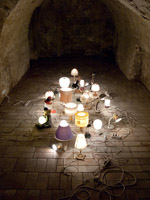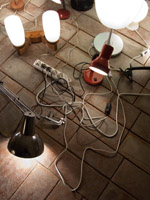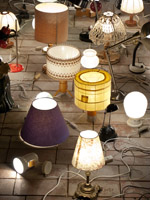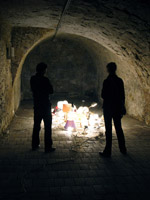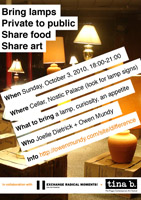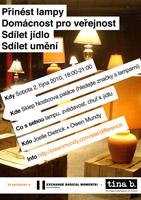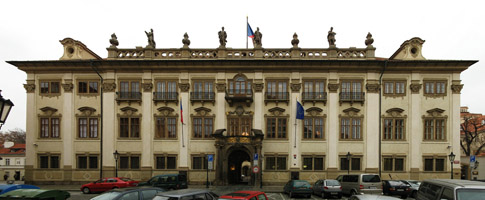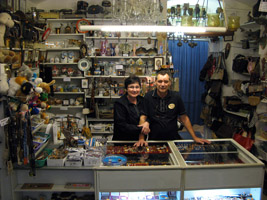The Difference Between Now and Then
In fall 2010, Owen Mundy and Joelle Dietrick re-staged their 2006 installation The Darkest Hour is Just Before Dawn. The re-staging of the project in Prague provided an unusual cross-cultural comparison about domestic settings with attention given to how cultural, geographical and political structures affect private space. In the context of the recent housing crisis and resulting economic downturn, the simple gesture of gathering everyday objects yielded unusual insights into common assumptions about micro-macro shifts—the individual and the state, private versus public, and local and global.
More information about The Difference Between Now and Then
http://owenmundy.com/site/difference
The Darkest Hour is Just Before Dawn
York, Alabama, Prague, Czech Republic, May-July 2006Sponsored by The Coleman Center for the Arts
During May 2006 in the city center of York, Alabama, Owen Mundy and Joelle Dietrick borrowed lamps from the residents and installed them in an abandoned grocery store. Each lamp was set to turn on every night, and because of the inexactitude of the timers chosen, did so in an organic fashion, one by one, reflecting not only the participants in the community, but also the history of Alabama's social movements. In an area where a nearby hazardous waste landfill caused the water to be undrinkable, the artists and the community collectively revived the vacant commercial space, removing roomfuls of damaged post-Katrina FEMA water boxes and transforming the downtown with the lamps, pulsing at their own pace, human in the imperfections and variety, and more powerful as a collection.
More information about The Darkest Hour is Just Before Dawn
http://owenmundy.com/site/darkest_hour
2010 + 2006
Both projects are part of a long-standing Duchampian tradition in which artworks re-contextualize found object(s) as a way to heightened the awareness of everyday object(s). Also inspired by recent community-based art with its emphasis on relational aesthetics, both projects emphasize dialog (though community discussions in Alabama and the Twitter feed in Prague). Although dialog is documented, the greater emphasis is on the power of small gestures and the importance of collective action as a way to turn a basic request into something bigger than the self. With an anti-genius stance, the success of the projects depends on pre-existing networks and often opens new connections, sparking unusual discussions about the objects normally sequestered in the home. Sometimes these objects are utilitarian and basic; in other cases, the emotional resonance of these functional forms cannot be measured.

Sponsored by Exchange Radical Moments! and the TINA-B Prague Contemporary Art Festival
